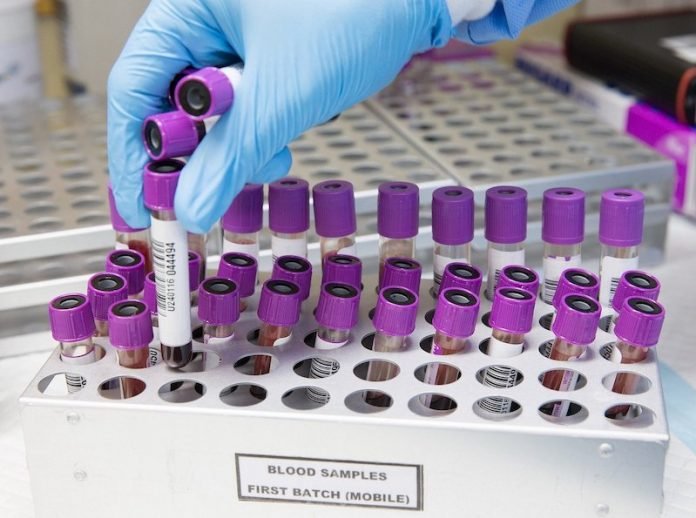
In a new study from Massachusetts General Hospital, researchers found early-stage lung cancer could be detectable from a drop of blood.
Lung cancer, the leading cause of cancer death, is usually diagnosed at a late stage when the survival rate is extremely low.
Early-stage lung cancer is mostly asymptomatic, and low-dose spiral CT imaging, the current method for detecting early lung cancer lesions, isn’t feasible as a widespread screening test for the general population.
This study provides proof of concept for the ability of a drop of blood to reveal lung cancer in asymptomatic patients.
In the study, the team built a lung-cancer predictive model based on metabolomics profiles in blood.
The presence of lung cancer, with its altered physiology and pathology, can cause changes in the blood metabolites produced or consumed by cancer cells in the lungs.
The researchers measured metabolomics profiles in blood using high-resolution magnetic resonance spectroscopy.
The team screened tens of thousands of blood specimens and found 25 patients with non-small cell lung cancer (NSCLC). They matched these patients with 25 healthy controls.
The researchers first trained their statistical model to recognize lung cancer by measuring metabolomic profile values in blood samples and compared them to blood samples from the healthy controls.
They then validated their model using blood samples from the same patients obtained prior to their lung cancer diagnosis.
Here the predictive model yielded values between the healthy controls and the patients at the time of their diagnosis.
The team says the results were very encouraging because screening for an early disease should detect changes in blood metabolomic profiles that are intermediate between healthy and disease states.
The study demonstrates the potential for developing a sensitive screening tool for the early detection of lung cancer.
The new model can identify which people may be harboring lung cancer. Individuals with suspicious findings would then be referred for further evaluation by imaging tests, such as low-dose CT, for a definitive diagnosis.
If you care about lung health, please read studies about 1 in 3 people with severe COVID-19 still have lung changes after a year, and findings of newly approved drug that can effectively fight lung cancer.
For more information about health, please see recent studies about 5 ways to keep your heart safe, and results showing that Vitamin D level strongly linked to your future health risks and death.
The study is published in Proceedings of the National Academy of Sciences. One author of the study is Leo Cheng, Ph.D.
Copyright © 2021 Knowridge Science Report. All rights reserved.



